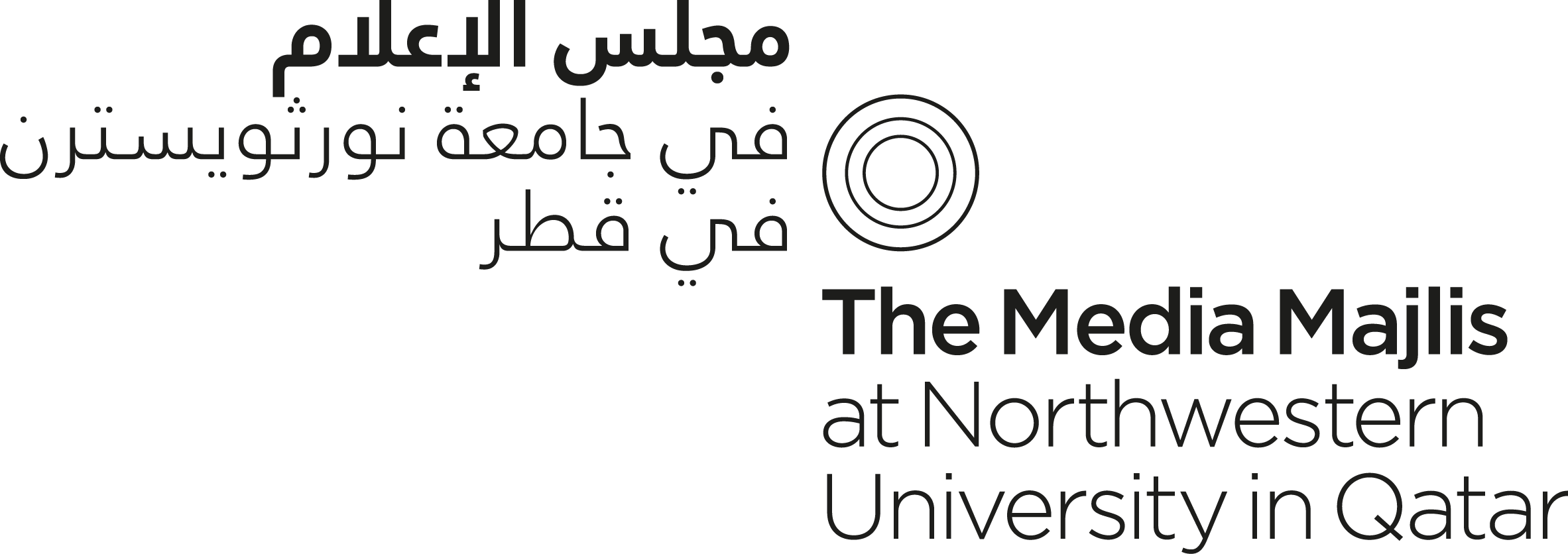
Due to concerns around the coronavirus (COVID-19), and based on guidance from health and travel authorities, both March programs for The Media Majlis are being canceled. Ticket holders will receive full refunds.
What does it mean to listen politically? What are the audible characteristics of what we hear? Who controls what we listen to or how we listen?
Different audio formats, soundscapes and voice itself can become, or are, inherently politicized. How we listen can shape our understanding of sociopolitical histories, spark desires for activism—or alternatively, create biases and misinformation. We must therefore understand our place and position in this process, and consider how listening can impact democracy.
Join us for an evening of discussion and debate, diving into these topics with composer Bushra El-Turk, poet and record archivist Arash Saedinia, and professor of philosophy, Christoph Cox.
-
Venue accessibility
-
Simultaneous translation
Simultaneous translation (Arabic/English) is provided for all programs.
-
Wheelchair accessibility
The Projection Theatre is fully wheelchair accessible and features multiple wheelchair spaces with unobstructed views of the stage and screen.
-
Sign Language interpretation
Sign Language interpretation (ASL and ArSL) may be requested for talks, discussions, lectures and tours. Please contact the museum well in advance of the program to discuss this service. You are welcome to bring an interpreter with you—please let us know ahead of time and we will ensure that appropriate seating is reserved. A program ticket does not need to be purchased for an interpreter providing prior notification of their attendance at a specific program is provided to the museum.
-
Wifi
Free wifi access is available in the building. On your mobile device, with wifi switched on, select Guest-NUQ-Majlis from the available services and accept the terms of service to connect.
-
-
Program credits
Christoph Cox
Christoph Cox is professor of Philosophy at Hampshire College, USA. He is the author of Sonic Flux: Sound, Art, and Metaphysics (2018) and Nietzsche: Naturalism and Interpretation (1999), and co-editor of Realism Materialism Art (2015) and Audio Culture: Readings in Modern Music (2017 second edition). The recipient of an Arts Writers Grant from Creative Capital/Warhol Foundation, he is also editor-at-large of Cabinet magazine. His writing has appeared in ranging from Artforum, and The Wire, to the Journal of the History of Philosophy, Journal of Visual Culture, and The Review of Metaphysics. He has also curated exhibitions at multiple venues including the Contemporary Arts Museum Houston and CONTEXT Art Miami.
Arash Saedinia
Arash Saedinia professor of English at Los Angeles City College, having studied political science at UC Berkeley, and law at Harvard University. His published poetry has appeared in the Iranian diasporic journal Chanteh, and in A World Between: Poems, Short Stories and Essays by Iranian-Americans (1999). His translations of works by Iranian poets Nima Yushij and Sohrab Sepehri have appeared in B|ta’arof magazine, for which he was also a contributing editor. Visual work includes photography featured in the exhibition Document: Iranian-Americans in Los Angeles at UC Los Angeles Fowler Museum, and the seminal compilation Pomegranates: Persian Pop, Funk, Folk and Psych of the 60s and 70s (Finders Keepers Music), and Displacements (Craft and Folk Art Museum, Los Angeles). His most recent film O, Cyrus appeared as part of compendium of works produced on the occasion of the Cyrus Cylinder's international tour.
Lawrence Abu Hamdan
Lawrence Abu Hamdan is an artist and audio investigator. Abu Hamdan’s interest with sound and its intersection with politics originate from his background as a touring musician and facilitator of DIY music. His audio investigations have been used as evidence at the UK Asylum and Immigration Tribunal and as advocacy for organizations such as Amnesty International and Defence for Children International. His forensic audio investigations were also part of his research in Forensic Architecture at Goldsmiths College London, where he received his PhD in 2017. Most recently he was the recipient of the 2018 Abraaj group art prize and won the Turner Prize in 2019 as part of a collective. Exhibitions of his work have appeared at the Hammer Museum, Los Angeles (2018), Kunsthalle St Gallen (2015), and Beirut in Cairo art space (2013).
Bushra El-Turk
Bushra El-Turk is a composer, and artistic director and leader of Ensemble Zar. She has written works for the London Symphony Orchestra (LSO), BBC Symphony Orchestra, London Sinfonietta, Orchestre National de Lorraine, and the Lebanese Philharmonic Orchestra amongst others. Her works discuss important socio-cultural issues, combining her Lebanese roots with Eastern and Western sound, and aspects of the absurd and theatrical. Her first opera, Silk Moth (2015), examined the complex tragedies of honor crime, family violence, and female (dis)empowerment in Britain and beyond. In summer 2017, her second opera, Woman at Point Zero, was presented by the Royal Opera House and Shubbak Festival in London. In 2019, she was commissioned by the London Symphony Orchestra to create Tuques, performed in front of an audience of 7,000 people in Trafalgar Square.
